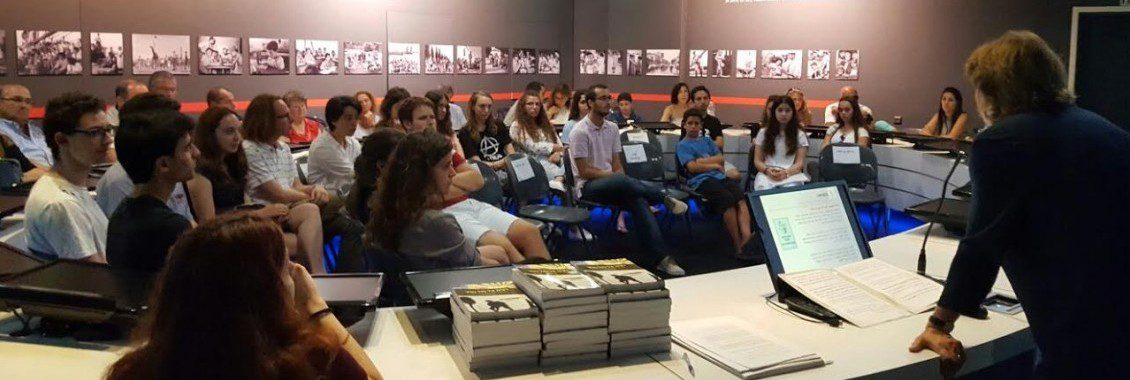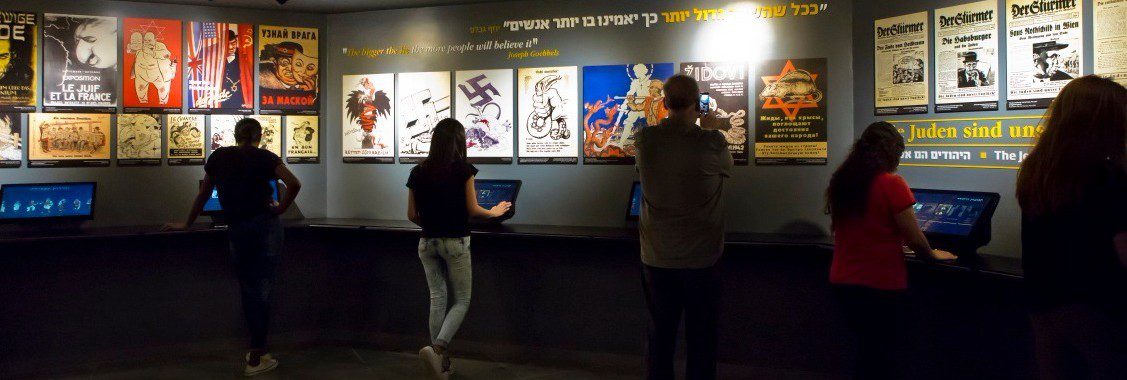


Teachers colleges
Massuah’s educational approach centers on experiential and value learning that combines teaching main issues in the Holocaust with discussing their meaning as is relevant to Israeli society today.
The program for teaching students combines practical experience with a broad range of educational approaches and teaching aids and didactic and pedagogical discussions on teaching the Holocaust and its meaning, in correspondence with the training programs at the colleges. In these workshops, emphasis is placed on the requisite discretion in choosing topics and methods that are suitable for this fraught theme.
Contents:
- Use of testimonies – in teaching the Holocaust – use of survivors’ videotaped testimony as teaching vehicles, and the importance of empathy in teaching the Holocaust.
- Alternative Evaluation – a getting-acquainted workshop and presentation of the specific program: meaningful learning and Alternative Evaluation from theory to practice at Massuah Institute, and production of a learning outcome such as a digest, an exam, or an exhibition in the course of a workshop at the museum.
- “Six Million Accusers – the State of Israel Adolf Eichmann” – The exhibition probes the Holocaust as reflected through the witnesses who took the stand at the trial and the artifacts entered into evidence. Its focal features are a multiscreen presentation and an interactive multimedia system based on 150 videotaped testimonies and hundreds of photographs and documents. In visits to the exhibition, emphasis is placed on the museum as a tool for teaching history and the intelligent use of testimonies for teaching purposes.
- “Multimedia Workshop – Israel as a Multicultural Society” – The program comprises two interactive activities: on stereotypes in Israeli society and, afterwards, on racism and personal rights in Israeli society. Participants examine their emotional and cognitive attitudes toward the topic. The methodological discussion focuses on two levels:
- studying the history of ideas by analyzing visual media.
- current affairs – the line that separates relevant discussion from political discussion.
- Activity at the exhibition: “The Hate Industry – Antisemitism, Racism, and Xenophobia in the Past Hundred Years” – The exhibition takes a critical look at mechanisms of propaganda and incitement in historical and current contexts and stimulates discussion of the inherent dangers of propaganda. It also deals with manifestations of the ascendancy of delegitimization of the State of Israel in the international discourse in the past decade; antisemitism in twenty-first-century Arab propaganda; the motive of demonization and the world Jewish conspiracy in contemporary propaganda; and incitement on the Web and in social media.
- “Reflection” – art workshops as vehicles for reflection on the teaching process.





